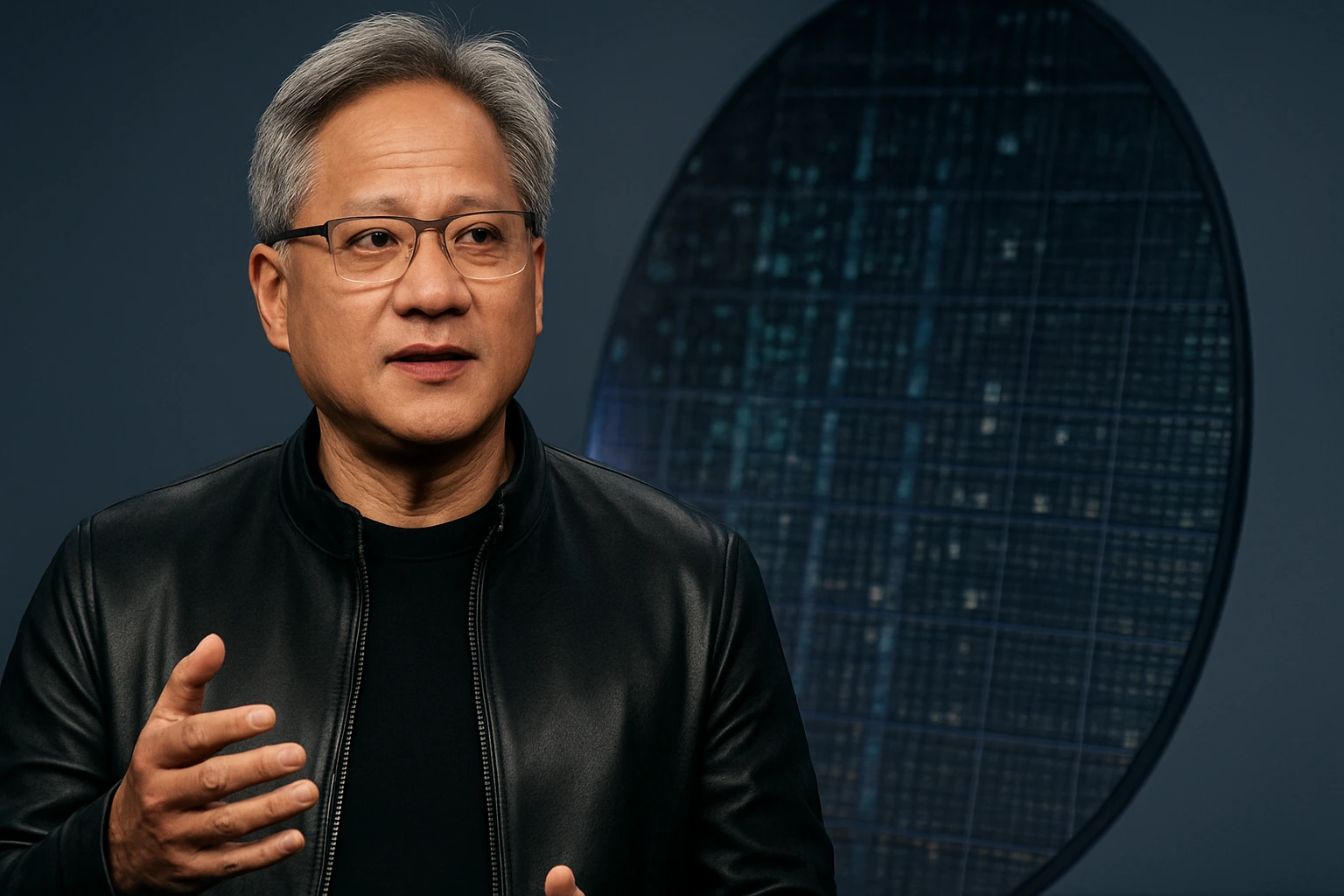HSINCHU, Taiwan — Nvidia Chief Executive Jensen Huang said Saturday that demand for the company’s new generation of Blackwell chips is very strong, as the semiconductor powerhouse continues to expand its reliance on Taiwan Semiconductor Manufacturing Co. (TSMC) and global memory suppliers to meet surging artificial intelligence (AI) needs.
Speaking at an event hosted by TSMC in Hsinchu, Huang emphasized the scale of Nvidia’s collaboration with its longtime manufacturing partner, noting that the Blackwell platform encompasses a wide range of processors and networking components.
“Nvidia builds the GPU, but we also build the CPU, the networking, the switches and so there are a lot of chips associated with Blackwell,” Huang told reporters.
The comments come as Nvidia cements its position as the world’s most valuable semiconductor company and one of the central players in the global AI boom.
In October, the California based firm became the first company in history to surpass a $5 trillion market valuation, a milestone that prompted TSMC Chief Executive C.C. Wei to refer to Huang as a “five trillion dollar man.”
TSMC, which manufactures Nvidia’s high performance graphics and AI chips, plays a crucial role in the company’s supply chain. Wei confirmed that Huang had requested additional wafer capacity but declined to disclose specific figures, citing confidentiality.
“TSMC is doing a very good job supporting us on wafers,” Huang said, adding that Nvidia’s success “would not be possible without TSMC.”
The two firms have maintained a deep partnership for over a decade, with TSMC’s advanced process technologies powering Nvidia’s leading GPUs the backbone of data centers, AI training systems, and supercomputers worldwide.
Analysts said the strong demand for Blackwell chips underscores the accelerating need for AI infrastructure across industries, from cloud computing to autonomous vehicles.
“Every major AI model today relies on Nvidia’s chips,” said Clara Lin, a semiconductor analyst at TrendForce in Taipei. “Blackwell represents the next leap forward, offering higher energy efficiency and faster memory access, which is critical for training large language models.”
Lin added that Nvidia’s heavy dependence on TSMC underscores Taiwan’s dominance in global chip manufacturing a concentration that some Western governments have sought to diversify amid geopolitical tensions.
“This partnership highlights both the strength and the vulnerability of the semiconductor supply chain,” she said. According to market research firm Omdia, Nvidia currently controls more than 80 percent of the global market for AI accelerators, a segment expected to grow from $45 billion in 2024 to over $130 billion by 2028.
TSMC, meanwhile, remains the world’s largest contract chipmaker, holding about 60 percent of the foundry market. Its most advanced process nodes, such as the 3 nanometer and upcoming 2 nanometer technologies, are essential for producing the highly complex Blackwell GPUs.
The surge in demand has also spilled into the memory market. South Korea’s SK Hynix announced last week that it had sold out all its chip production for next year, anticipating what it described as a prolonged “super cycle” driven by AI related orders. Samsung Electronics, another major supplier, said it was in “close discussion” with Nvidia to supply its next generation high bandwidth memory chips, or HBM4.
Industry workers in Taiwan described an intense production environment as demand for AI hardware continues to rise. “We are running our lines at near full capacity,” said Eric Chou, an engineer at a TSMC fabrication plant in Hsinchu. “Blackwell orders are unlike anything we’ve seen before it’s a global race to build AI infrastructure.”
Local suppliers echoed similar sentiments. Mei Ling Chen, a logistics manager for a TSMC subcontractor, said the increase in wafer shipments had created new opportunities across the supply chain.
“Everyone is benefiting from material suppliers to testing companies,” she said. “But it also means nonstop pressure to meet deadlines.”
Huang acknowledged that rapid growth could strain parts of Nvidia’s supply network. When asked about potential memory shortages, he noted that demand was expanding so quickly that shortages of “different things” could occur.
“We have three very, very good memory makers SK Hynix, Samsung, Micron and they’ve scaled up tremendous capacity to support us,” Huang said. “We have received the most advanced chip samples from all three.”
However, analysts warned that as demand continues to surge, prices for high bandwidth memory and advanced wafers may rise in the coming quarters.
“AI chip production is extremely capital intensive,” said Hiroshi Yamamoto, a senior analyst at Nomura Research in Tokyo. “Suppliers will likely adjust prices to manage both profitability and investment in new capacity.”
As Nvidia and its partners navigate the booming AI hardware market, their collaboration highlights both the promise and complexity of sustaining global chip production at unprecedented scale.
For Nvidia, the strong demand for Blackwell chips cements its leadership in the AI era. For TSMC and memory makers, it marks another chapter in the industry’s relentless drive to meet the world’s growing appetite for computing power one wafer at a time.
